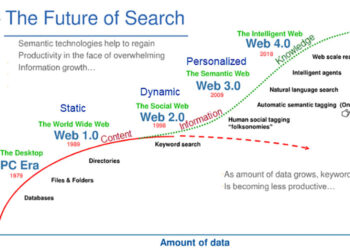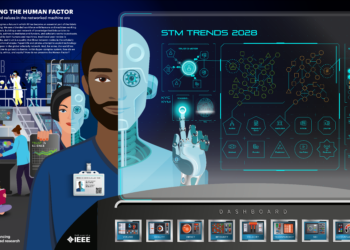
The recent news that Rakuten is acquiring OverDrive, as Gary Price reports on Infodocket, is, or is not, news. It’s news if you didn’t see this coming (shame on you!), but not news if you have been observing the industry of late. As I have noted on the Kitchen before, the environment is ripe for consolidation. We will see more of it in the months ahead. Sometimes consolidation is simply a matter of buying up market share, a tried and true strategy in mature markets, and sometimes there is a deeper component to it–that is, it repositions the acquiring company either to more easily fend off competitors or to open up new market possibilities. Rakuten, which owns Kobo, Amazon’s principal rival on the international stage, is perhaps doing both: it is landing a punch on Amazon’s nose and simultaneously acquiring some new capabilities in the library and retail markets. Nice move for Rakuten. I wish them luck with this deal, though I would like to ask the due diligence team if they were ever able to figure out how to use the OverDrive service for library ebooks. And great news for OverDrive founder and CEO, Steve Potash, who will be carving up a $410 million purchase price with his no doubt cheerful investors. Drinks all around!
The story that we are not getting to hear, though–call it the story behind the story–is why Amazon did not do this deal itself. It wouldn’t be because of the money–Amazon is not shy about opening up its checkbook. Apparently Amazon passed on this for strategic reasons. What are those reasons, I wonder. I am waiting for the other shoe to drop. Which reminds me: Amazon owns Zappos.
Over the next several weeks we will be hearing from commentators about all the implications of the Rakuten purchase. I anticipate that this will be a long list, but some items are already apparent:
- OverDrive gives Rakuten/Kobo a strong position in the U.S. library market.
- Both OverDrive and Kobo have publisher-relations teams. These will be consolidated and the combined entity will have more leverage working with publishers.
- OverDrive has an arrangement with Amazon in place. Look for that to disappear as soon as the contract’s term is up.
- Look for a plan to migrate onto a single technological platform. This goes under the heading of “Easier said than done,” but I bet it was in Rakuten’s business plan.
- Because of that last bullet point, and because OverDrive is not known to have user-friendly interfaces, it is probably the case that Rakuten was buying up a customer list, not OverDrive’s technology. So the due diligence on OverDrive’s technology may have resulted in a conclusive, “Who cares?”
There will be a lot more than this, of course. The announcement of any acquisition is like dropping a pebble into a pool of water: the water ripples outward and the ripples often crash into other ripples. For example, OverDrive has a “white label” retail business, meaning that they set up online storefronts on behalf of other businesses. How will this be developed? Will we be seeing online bookstores for the World Wildlife Fund, Wikipedia, and the AAUP? (I know that Wikipedia would not exist if it were a commercial site, but imagine what it would mean if that enormous traffic could be leveraged to give Amazon a run for its money.) OverDrive also has tools to set up bookstores within library catalogues. This is something that I would like to see more of: If a patron wants a book that a library does not have in its collection, then the patron could purchase the book on his or her own account. In a world that is seeing its bookstores disappear, it would be wonderful for libraries to provide this service.
Another aspect of the ripples is how they affect the strategies and valuations of other organizations. When a deal like this goes down, everyone asks, “What does it mean?” Publishers that have had a good relationship with Kobo, but an unsatisfactory one with OverDrive may welcome the deal, particularly because it means Amazon did not gobble up OverDrive’s library business, but they will wonder how Kobo plans to use its increased leverage. Librarians may gasp at the purchase price: How can a company be worth that kind of money when the librarians that constitute its primary customers can’t rub two dimes together? Other library vendors are rethinking their valuations (did Baker & Taylor let go of YBP at a discount?). Some companies that were not interested in getting sold may now be intoxicated with the dream of riches and are already dialing their bankers. Companies with significant ebook businesses in institutional markets (ProQuest, EBSCO) now have to reassess their strategies. What does it mean to have to compete with a company with a global footprint in consumer markets?
The real lesson of this deal, however, is not the specifics of the agreement but that it won’t be the last one. We are in a deal-happy period right now, and it is a seller’s market.
Discussion
3 Thoughts on "More Consolidation in the Publishing Business"
Interesting article Joe. I was only surprised at the price. Overdrive’s primary library base is school and public libraries. YBP has a 78% market share of the academic library market including over $100 million of EBook sales. EBSCO’s recent acquisition of YBP at a fraction of the price is a much more smart play. Once again this is a venture company play. Insight Venture Partners did a major sales job. Amazon was smart to walk away from this deal. At $410 million the price is more the good work of the venture firm than actual value. The academic EBook market is one that is still controlled by the publishers. Over 70% of all EBook sales are direct and not through ProQuest or EBSCO or certainly OverDrive. So this deal gives Rakuten access to US school and public libraries which is the smallest and least profitable library market. It is Insight Venture Partners sitting around the room dividing up their windfall.
In your market estimates for ebooks to academic libraries, are you including the Muse/UPCC figures as publishers’ figures? No quarrel with that; just seeking clarification.
I have not included the UPCC numbers but I included a 5% value to places I did not include. My actual number is 75%. Also I do not know the total library business sold by Amazon. The YBP and OverDrive were both venture deals. Somehow these professionals are able to sell companies well above there market evaluation.


